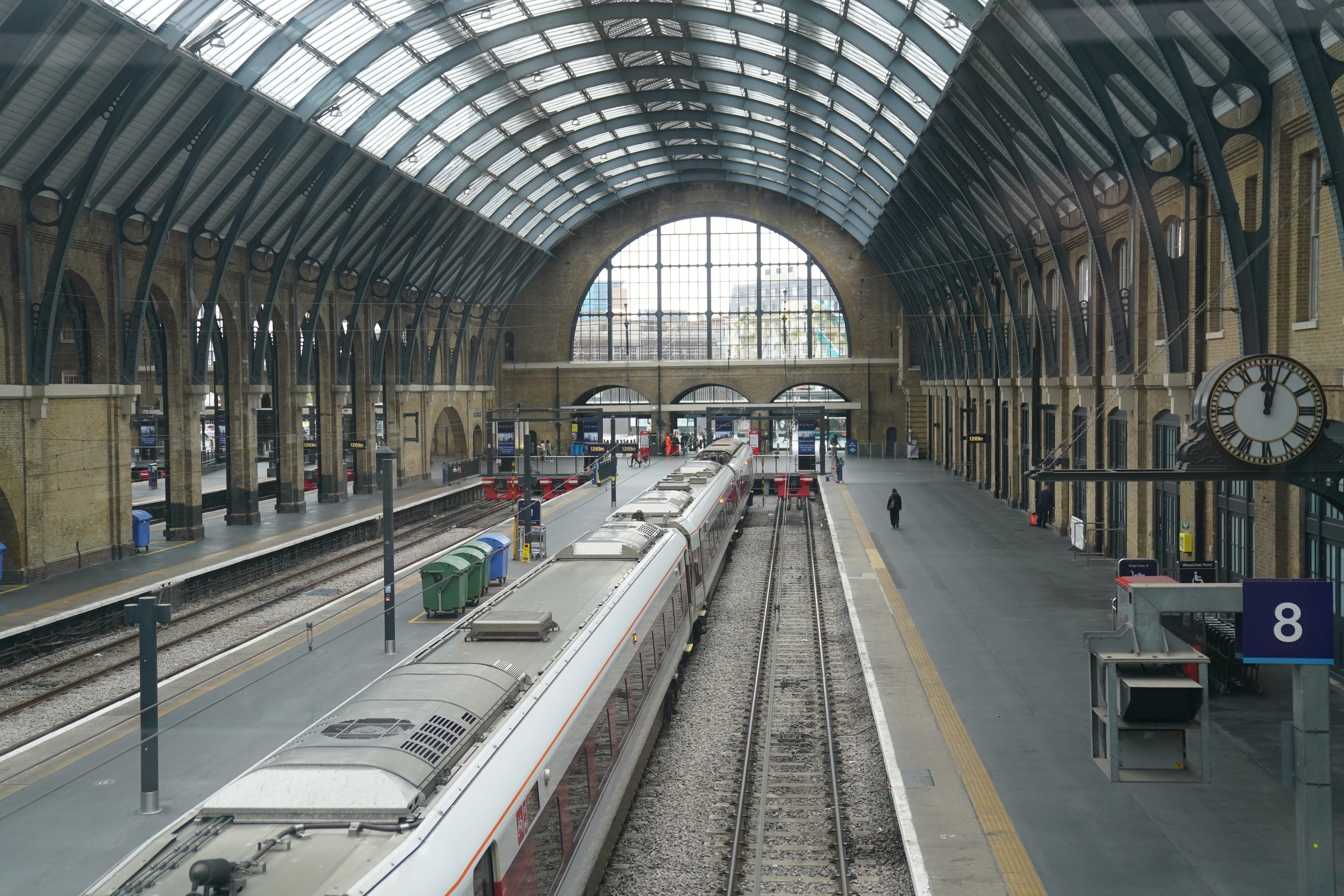Inside Politics: Off the rails
Rail workers walk out in dispute over pay and conditions with nurses set to follow on Thursday, writes Matt Mathers


Hello there, I’m Matt Mathers and welcome to The Independent’s Inside Politics newsletter.
So much for the mild winter, eh Kwasi Kwarteng? Fresh reports say the former chancellor was warned by Treasury officials about the dangers of his disastrous mini-Budget.
Inside the bubble
Our chief politics commentator John Rentoul on what to look out for:
Cabinet meets this morning. The Commons sits from 11.30 with Foreign Office questions, followed by the remaining stages of the levelling-up bill, now that the house-building target in it has been made advisory. Grant Shapps, the business secretary, appears before the committee scrutinising his department at 2.30. Also at 2.30, the International Development Committee will take evidence on question of counting spending on asylum seekers in the UK towards the foreign aid budget.
Daily briefing
Strike action
Four weeks of disruption on the railways kicked off earlier this morning as workers began the first of two 48-hour walk outs in an ongoing row over pay and conditions. Members of the Rail, Maritime and Transport union (RMT) are pressing ahead with industrial action at Network Rail – and 14 train companies – from Tuesday and Friday.
Trains will run from 7.30am to 6.30pm on this week’s strike days, although many parts of the country will have no services at all, including most of Scotland and Wales. Network Rail has warned people only to travel by train today and tomorrow if necessary.
The strikes go ahead after unions and train companies failed to reach a settlement. Some 63 per cent of RMT workers – on a turn out of 83 per cent – rejected an offer that included a 9 per cent pay rise over two years.
Mick Lynch, RMT’s general secretary, accused the government of failing to prevent the strikes. “This is a huge rejection of Network Rail’s substandard offer and shows that our members are determined to take further strike action in pursuit of a negotiated settlement,” he said.
Despite today’s walk outs, Mark Harper, the transport secretary, who earlier this week claimed some families face a virtual Christmas due to the strikes, said that the “tide is turning” within unions on the industrial action. He told broadcasters this morning that a “fair and reasonable offer” had been made to rail workers.
“One of the unions accepted that offer – Unite workers have accepted it, the TSSA have recommended acceptance and we’ll get their ballot results later this week,” he said. “But the RMT have refused to do so and I would call on them to look again at this offer and and accept it.”

Enjoying this newsletter?
Unlock unlimited, ad-free reading on the website and in The Independent app when you subscribe – plus, benefit from our welcome offer when you join today.
Eye of the storm
The UK is now firmly in the eye of the storm as far as the ‘winter of discontent’ goes, after it was all but confirmed last night that strike action by nurses this week will also go ahead following the break down of talks on pay.
Steve Barclay, the health secretary was accused of “belligerence” after refusing to discuss pay demands at talks with nursing union leaders, as the war of words over looming strikes turned ugly.
Despite agreeing to speak to the Royal College of Nursing on Monday evening, Barclay stuck by the government’s refusal to negotiate on the union’s demand for a pay rise 5 per cent above inflation. Pat Cullen, the RNC general secretary, said Barclay refused to even discuss pay with her, with strikes now set to take place on 15 and 20 December.
In other health news, Will Quince, the health minister, said patients could be taken to hospital by taxi during next week’s ambulance strike. He said emergency vehicles would be used for the most urgent 999 calls, such as heart attacks and strokes, as thousands of paramedics strike on 21 and 28 December, but other transport could be used for less-urgent call-outs.
Analysis by the Labour Party, meanwhile, says that around 30,000 operations were cancelled last year in NHS hospitals in England because of a shortage of staff. Data gathered from freedom of information requests showed that staff shortages were the most common reason why surgeries did not go ahead for non-clinical reasons.
On the record
Pat Cullen, RCN general secretary, on last night’s failed talks.
“They would not talk to me about pay. I needed to come out of this meeting with something serious to show nurses why they should not strike this week. Regrettably, they are not getting an extra penny.”
From the Twitterati
Steven Swinford, The Times politics editor, says chancellor is treading a delicate line on strikes.
“Jeremy Hunt treads a delicate line on strikes. He tells @EdConwaySky that he recognises that union concerns over pay are ‘completely sincere’ because of 11% inflation. He says govt also has a ‘sincerely held’ position that it doesn’t want to lock in high inflation rate.”
Essential reading
- Sean O’Grady, The Independent: The UK has the difficult task of finding friends in a post-Brexit world
- Marie Le Conte, The Independent: Three rings of Tory power have emerged – but there’s only one Rishi Sunak to bind them
- William Hague, The Times: Mass extinction must not be our great legacy
- Derek Thompson, The Atlantic: Why the age of American progress ended
Inside Politics first appeared in our daily morning email. You can sign up via this link.
Join our commenting forum
Join thought-provoking conversations, follow other Independent readers and see their replies
Comments